
views
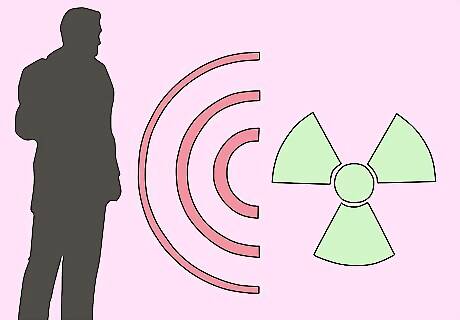
Understand from the outset that to limit the amount of radiation you are exposed to, you will need to focus on three things – time, distance and shielding. The effects of radiation are cumulative, so the longer you stay in an affected area, the more exposure you get. To put into effect limiting your exposure, try to do the following: Time: Minimize the time spent exposed to reduce your risk. Distance: Get yourself away from the source. The farther away you are away from the blast and the fallout, the lower your exposure. If you can get away, then leave as soon as possible. Shielding: If you have a thick shield between yourself and the radioactive materials more of the radiation will be absorbed, and you will be exposed to less. In the case of a nuclear reactor accident, time is not as urgent as with the setting off a dirty bomb or RDD, although if you live within a 10 mile (16 km) radius of the power plant, you should already be aware of how to respond if there is an accident at the plant.
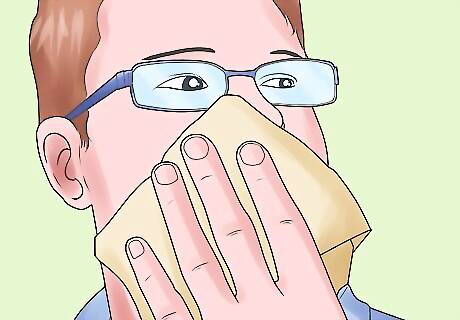
If you are in a larger geographical area that has been exposed to radiation, getting away from the contaminated area must take place quickly, otherwise you will need to take other preventive measures. After an explosion or a leak, if you can't get away quickly (and safely), try the following: If you are outside and there is an explosion or authorities warn of a radiation release nearby, cover your nose and mouth and quickly go inside a building that has not been damaged. Cover your nose and mouth with a handkerchief, your hand, or anything else you have on you (like a sweater). An undamaged building is one that appears structurally sound to you from a quick observation, namely no leaning walls, not broken or falling parts, etc. Close windows and doors. Turn off air conditioners, heaters or other ventilation systems.
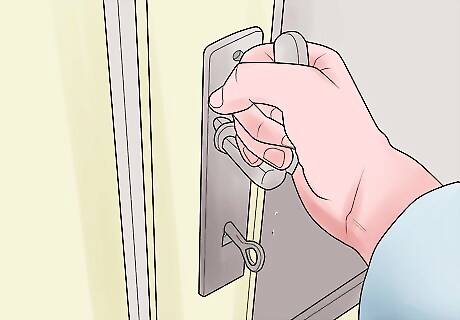
If you are already inside, check to see if your building has been damaged but shelter in place. If your building is stable, stay where you are. If you are inside and there is an explosion near where you are or you are warned of a radiation release inside your very building, cover your nose and mouth and go outside immediately. Look for a building or other shelter that has not been damaged and quickly get inside. Once you are inside, close windows and doors. Turn off air conditioners, heaters or other ventilation systems. Try to make it airtight by stuffing clothing or other objects along any open areas. Do not turn on ventilation systems of any kind that draw air from outside, such as air-conditioning, dryers, etc. Don't allow the inside place to overheat or vulnerable persons are liable to heat stroke, possible suffocation, and other complications. If you have to briefly turn on the air-conditioning, this may be better than dying from over-heating. If you are inside a car when an explosion occurs, roll up all the windows and park the car. Go into an undamaged building. If it's not possible to leave the car, keep the windows closed and do not use the air-conditioning.
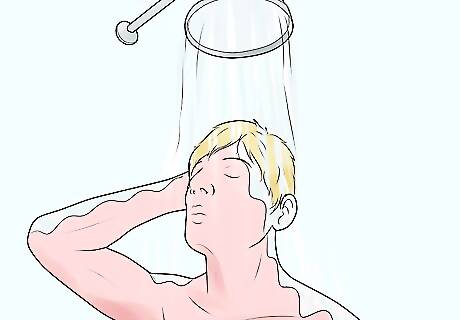
Clean up quickly. If you think you have been exposed to radiation, take off your clothes and wash them as soon as possible. Armin Ansari advises that it is best to think of decontaminating radioactive material in the same way as getting rid of mud - be careful to think about not traipsing it indoors, not getting it all over the place, and not washing it deeper into yourself. Note that visible signs of radioactive dust, particles, or material will only be likely with a dirty bomb; contamination from a nuclear reactor accident is invisible. The steps offered next are appropriate to both scenarios, just that you won't "see" any radioactive particles with a radiation leak from a reactor. To decontaminate, do the following: Remove your outer layer of clothing. Place this into a plastic bag and secure the bag closed. Leave this bag somewhere like your garage or car trunk for authorities to test later if needed. Remove your shoes once home or at a shelter, and all other clothes. Place these into a plastic bag and seal. If you're able to do this outside your home, it's best, as it'll save tracking the radiation inside the house or shelter. Don't squeeze the bag shut or radioactive dust may float out. Avoid taking off any clothes over your head. If you have no choice, then hold your mouth shut and do not breathe so that you don't inhale dust from your clothes. If you have to cut them, do so for the sake of your health. And any wounds or cuts on your body should be covered before removing clothes, to prevent the potential for dust to enter them. Take a lukewarm shower. Avoid hot water and scrubbing which can help increase absorption of radioactive material. Wash your hair but only use shampoo because conditioners may actually help bind radioactive material to your hair. Wash from the top down using gentle soap, or just water. Rub ears, eyes, and face clean. If you don't have access to a shower, use a sink and wash as best you can. Even moist wipes can wash you down. For children, prefer the shower but if they don't like it, do not immerse them as the water could be contaminated, making showering the best option, or wiping them down if they won't shower.
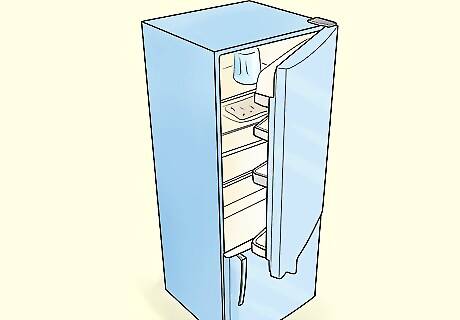
Eat food and drink liquids that are covered. Any food or drink that has been left out in the open has potentially been exposed to radiation and may not be safe. Food straight from the fridge or cupboards should be safer, as well as food from closed containers.
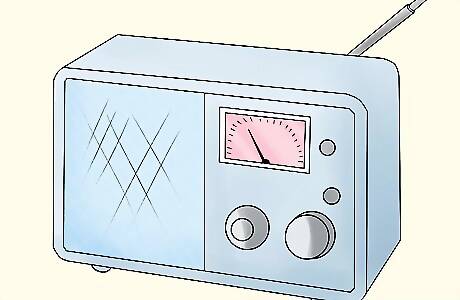
Stay where you are and keep informed. Watch TV, listen to the radio, or check the Internet for official news as it becomes available. The indoor sheltering time for a dirty bomb is relatively short, about 30 minutes to a few hours, dependent on local weather conditions and other factors authorities will inform you about.
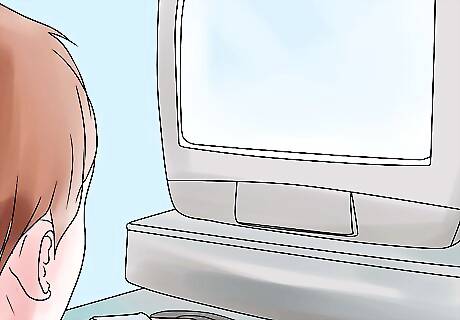
Take great care when evacuating. One of the major concerns is panic and when there are traffic jams and long line-ups for fuel, you won't find evacuating easy going. It won't help you any if you have a car accident and get hurt or killed, so be very careful when relocating and keep it orderly. Stay tuned to the authorities' advice. Beware the rumor mill. It will be rampant and most of it will be completely wrong; do not base any of your decisions on rumors from anybody around you. Look for radio, TV, or online advice from authorities.

















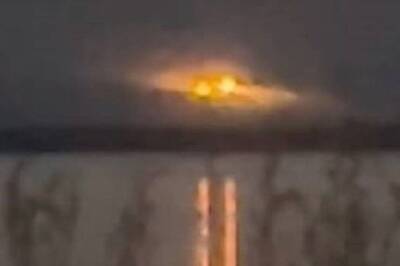


Comments
0 comment